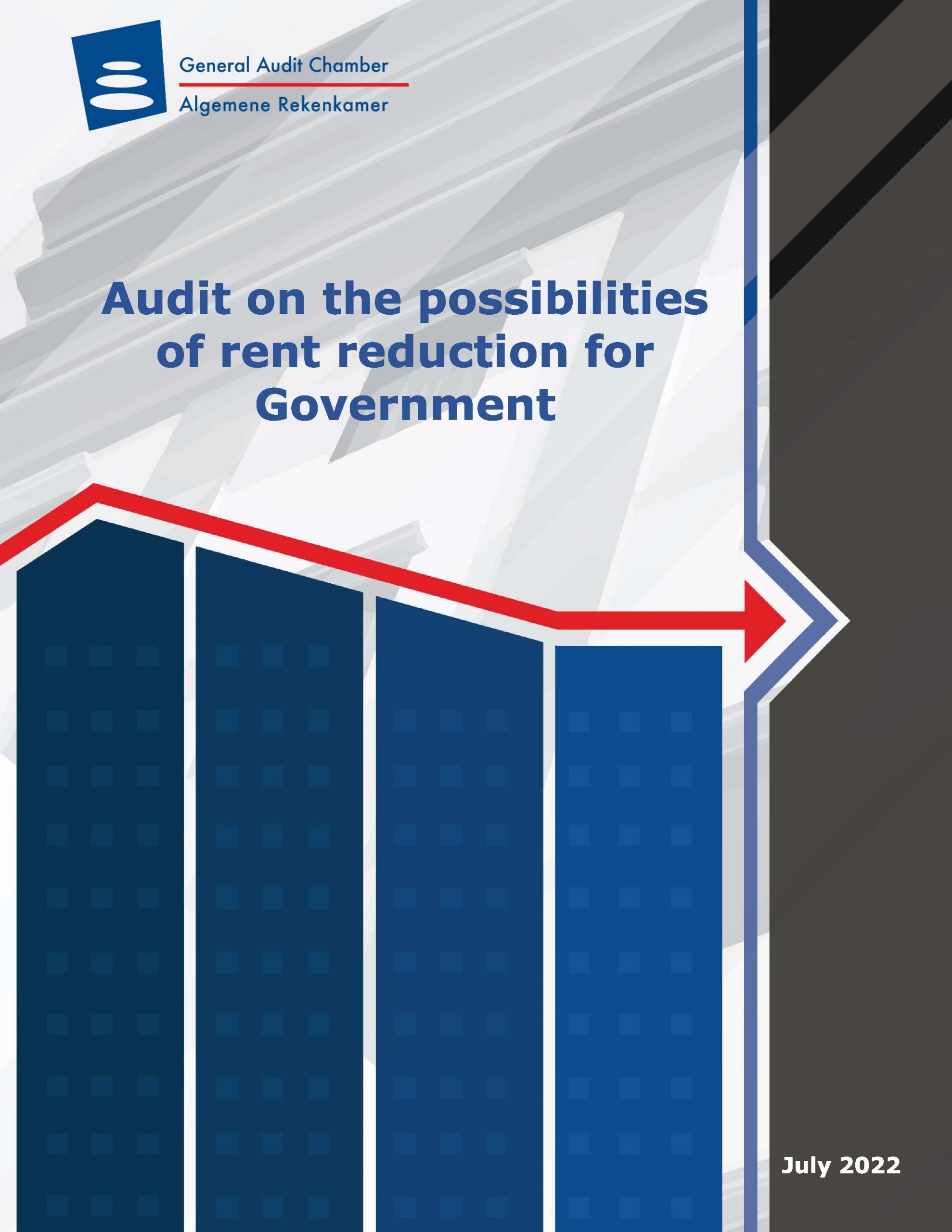Audit Chamber doubts whether lowering rental costs is feasible
PHILIPSBURG — “We question if the goals set forth in the country package are realistic,” the General Audit Chamber states in its audit on the possibilities of rent reduction for government. Prime Minister Silveria Jacobs signed the agreement for the country package in December 2020. One of the measures mentioned in this deal is a 20 percent reduction of the rent the government pays for office space by 2025.
The Audit Chamber is puzzled about the basis that should be used to calculate the reduction. The budgets for 2020 and 2021 both mention total rental costs as 15.2 million guilders, but in the 2022 budget it has gone up to 17.8 million. The countries financial statements for 2020 are unreliable and those for 2019 received an adverse opinion. The Chamber states that it makes more sense to use realized amounts than to base the desired reduction on budgeted amounts.
Meanwhile the confusion remains: “We are unable to determine the basis for the 20 percent reduction and the feasibility of achieving this.”
The government rents 47 office spaces from 26 different parties; three of them are government-owned or related entities: SOG (Foundation Government Buildings), SZV and St. Maarten Harbor Cruise Facilities.
The Vineyard Private Fund Foundation rents out three buildings, located on the W.G. Buncamper Road and the Juancho Yrausquin Boulevard for a total monthly charge of $22,570. These offices are the home of, among others, the Bureau for Statistics and the Tourist Bureau.
A company called Vineyard Office Park is renting offices to the Social Health Center, the Tax Office, the Department of Hygiene and Inspection and Collective Preventive Services for a total monthly charge of $127,518.
For its seven ministries, the government spends $670,914 per month or $8,051.294 per year in rent. This does not include the rent for the parliament building, and the offices of the Audit Chamber, the Ombudsman, the Social Economic Council and the Council of Advice. This adds another $1,256,574 to the total. The parliament building is the most expensive: 1.7 million guilders ($949,721) per year.
The Audit Chamber obtained copies of 27 lease agreements from the Ministry of General Affairs. “Some were unsigned and others outdated or in the name of the previous owner,” the report states. Ten of the leases contained automatic rent-increases from 3% (annually) and 5% (after 5 years) to 10% (very two years).
Using the 2019 budget as a benchmark, the Audit Chamber points out that the desired 20 percent reduction amounts to 3.6 million guilders ($2 million) over the period until 2025, or 720,000 guilders ($402,235) per year.
But how to achieve the goal to reduce rental costs? The Audit Chamber-report mentions two options: relocation or termination of lease agreement. The report advises the government to investigate the costs of relocation and remodeling. As a possible impact the report mentions lower turnover and income taxes for the government and it observes that an impact study should have been done before setting the objective of reducing rental costs by 20 percent.
“Terminating leases could result in long-term unoccupied buildings. The possible negative economic impact should not be underestimated and it should be researched.”
The Audit Chamber did a bit of researching of its own by sending out a survey to 19 of the 26 lessors it has identified. Four lessors were left out because it was not possible to obtain correct contact information and three were left out because they are government owned or related.
Seven lessors indicated their potential willingness to renegotiate their lease agreements and six of them said they were willing to relinquish the annual rent-increase.
The lessors also offered a suggestion to bring the costs down: have the government use available office space more efficiently. One lessor suggested rent-to-buy agreements as an alternative.

























